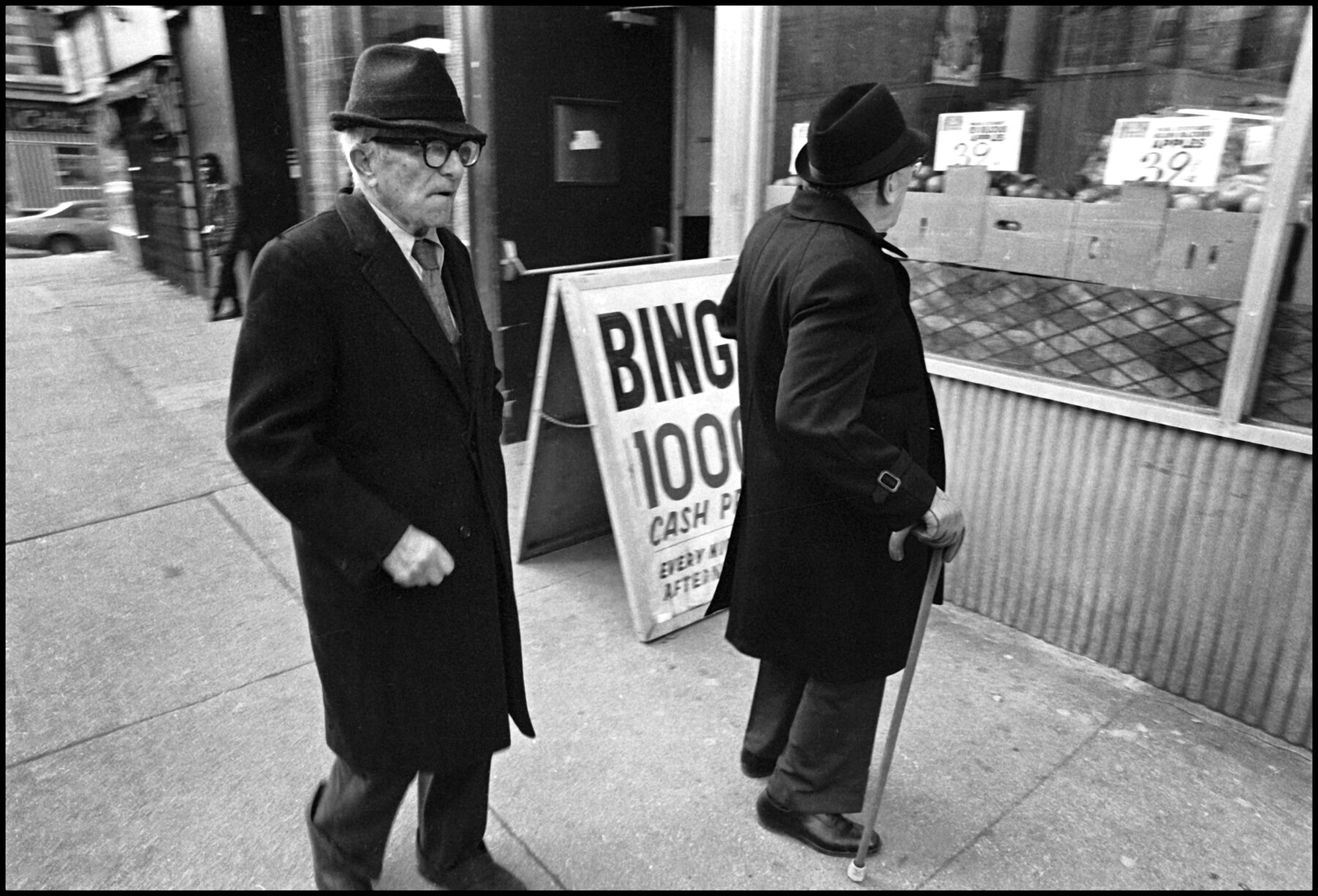Crap. I'm only going to get 19 years? WTF?
I am standing with my fingers knitted together, resting on the top of my head. A few feet away, there is a gun pointed at my face, and I'm trying like I've never tried anything to not pee on myself. Also, I am not looking at this guy, so he won't think I can ID him, and he has to kill me. I look up. On the opposite wall, just above the head of my new acquaintance, there is a Kodak poster. A woman in a red bathing suit is lying on a surfboard looking directly into the lens. She looks as if she is waiting for me to say hello or something. She smiles because she is pleased to have been photographed on Kodak film.
Glancing down at the gun's business end, I think, "This is all on Diane Arbus."
I was going to be like David Hemmings in Antonioni's "Blowup." You know that movie, yes? Well, you should. It influenced a generation of middle-aged men and teenage boys. It made them wannabe fashion photographers, drive a Jaguar XKE, shoot gorgeous models, and wear turtlenecks. In the late '60s, if you couldn't be James Bond, this was the next best thing. If you have absolutely no clue what I'm telling you here, read up. I'll wait.
https://en.wikipedia.org/wiki/Blowup
OK, let's continue. Don't forget I'm standing in a camera store with a gun pointed at me. I'd like to conclude that life insult with a positive outcome ASAP. (Note to self: write about all the weird shit I thought about while a gun was pointed at me.)
Back in New Jersey:
My girlfriend's mother had me cornered in the kitchen. She was always kind of handsy, and I tried not to be alone with her. Sue, my girlfriend appeared, Mom backed off and said: "I'm going to show it to him." She scurried from the kitchen. "My mom has something to show you," Sue said. Of course, I had no idea that my life would be forever changed in Sue Marcus's kitchen in just a few moments. The most important thing that had ever happened to me in that house was some under the shirt plus.
I'm not going to write all that kitchen dialogue; it's pure exposition. For the reasons mentioned above, I want to hurry up and get that situation resolved.
Sues mom had me sit down at the kitchen table. She laid before me a thick softcover book about 10 by 8. It was the catalog from the 1972 Diane Arbus retrospective at the Metropolitan Museum. I had never seen anything like that before. I didn't know that anything like that had ever existed or could. Arbus's images spoke to me as nothing had ever before. Page after page was a "snap outta it" slap in the face. Some might say her pictures were "inappropriate" or "ugly" and "Why would anybody want to take a picture like that?" I knew precisely why. It was to be many years before I fully understood it. In all of Arbus's pictures, she shows us a world that most are blind to. And she does it with empathy and love. She didn't stand on the outside. There were no long lens coward shots here. Arbus became a part of whatever society she was documenting. Several years later, I was fortunate enough to take a master class at The New School with Lissette Model. She had been Arbus's friend and mentor. She told me Diane had lived in a brothel while photographing the prostitutes. She was fearless and brave and totally committed to her subjects.
What had I been doing? Camera Club High School Year Book bullshit. Lot's of sunsets, cute kittens, and for some reason lots and lots of canoes. The jocks were always asking me if I had a picture of them at the last game, or the cheerleader girlfriend wanted to know if I got a shot of that fantastic split. Yes. As a matter of fact, I did. In my defense, I was 18 and in high school, so what the hell do you expect? But I was bored with that kind of crap. It made me start to avoid taking pictures... it made me think I had wasted a lot of time. And, turtle necks made me itch terribly.
Arbus blew my mind, curved my spine, and won the war for the allies. This was what I wanted to see and do. I wanted to make pictures that forced the viewer to contemplate a subject so totally unlike them and, in turn, see what I saw. And I was just like Arbus. From my early teens, I had gone through bouts of severe depression. I always had dark thoughts, "suicidal ideation," it's now called. Diane Arbus committed suicide in 1971. When I read that, it made me sad, and I ruminated on it for weeks.
Change, however, is easier said than done.













